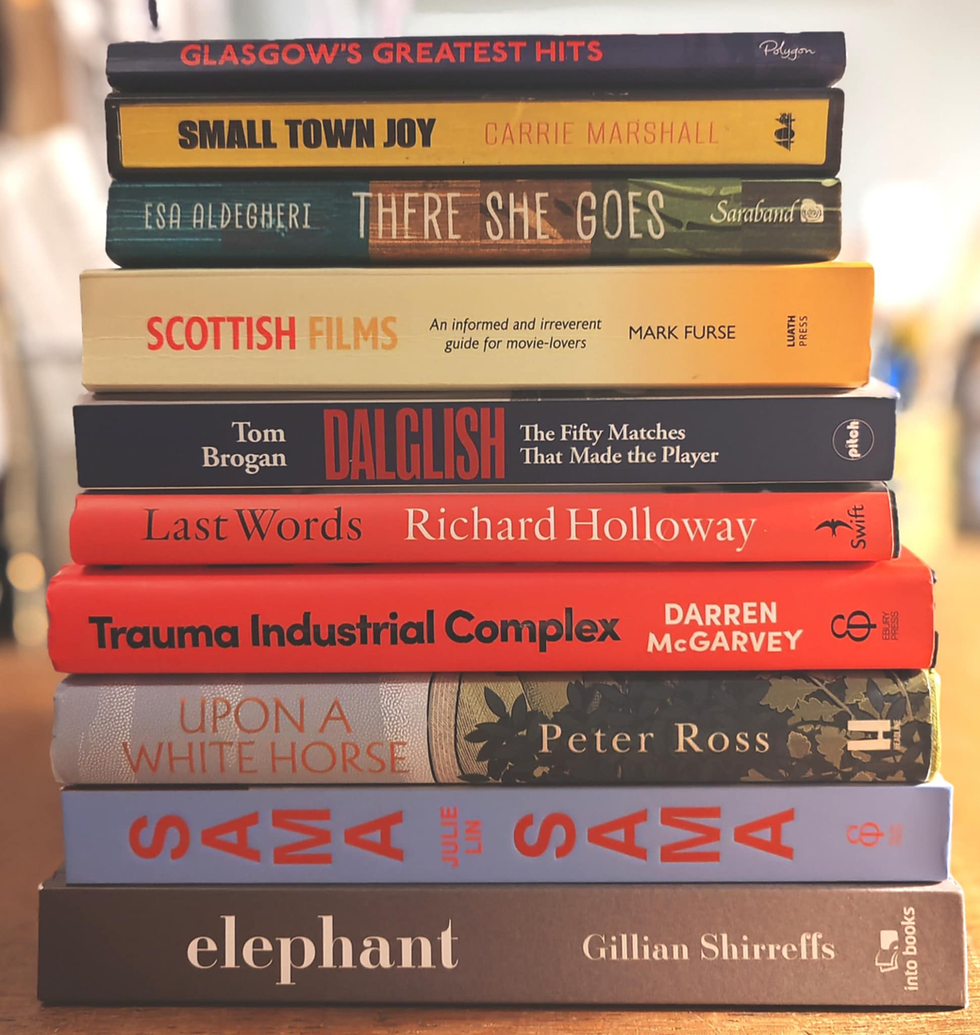Young Guns: A Review Of Andrew O’Hagan’s Mayflies…
- Alistair Braidwood

- Dec 2, 2020
- 4 min read
Updated: May 7, 2021

With Christmas hoving into view, we’ll be posting reviews of some of the best books of 2020, (a few of which have appeared in different versions elsewhere) and offering suggestions as to what to get the book lover in your life.
If this year has shown us anything it’s that the arts in all forms are central to a nation and its people’s well being. People have turned to music, TV, film, and, of course, books to get through the Lockdown days and beyond. For those with an interest in Scottish literature it was a hell of a year, and Publishing Scotland‘s Vikki Reilly will be discussing the year’s Best Books with Ali over a couple of podcasts – coming soon.
One of the books they mention is Andrew O’Hagan‘s Mayflies. O’Hagan is one of Scots Whay Hae!’s favourite writers, and this is one of his best. As with many of his novels fact and fiction are woven together (see also Personality, Be Near Me, The Life and Opinions of Maf the Dog, and of His Friend Marilyn Monroe) with the writer using real people and events as the starting point for the fiction. This time around the story is an intensely personal one, it being an elegy and requiem for his childhood friend, Keith Martin, with whom he shared teenage kicks and moonage daydreams, and who sadly passed away at the age of 51 in 2018.
This personal connection makes Mayflies O’Hagan’s most poignant and emotive novel to date. Previously readers could marvel at the quality and style of his writing, but often that seemed to take away from the emotional impact, or at least reduced it. It’s interesting to compare O’Hagan’s previous novels to recent Booker winner, Douglas Stuart’s Shuggie Bain, which, I would argue, is almost the opposite, with the huge emotional impact of his characters overshadowing aspects of the writing that could have been problematic otherwise. Don’t get me wrong, Mayflies is still a beautiful piece of writing – O’Hagan seems incapable of doing otherwise – but this time around the balance between style and substance is perfect.
It is split into two. Part one describes the wild and wonderful days of youth, specifically the summer of 1986, where narrator James and his best friend and kindred spirit Tully Dawson are facing the end of their school days and the beginning of the next chapter. Those summers are often the ones which come to define lives well beyond their end, and that’s the case for the two who, along with their peers and pals, head for a glorious weekender in Manchester, where bonds are strengthened and promises made.
The novel then jumps to Autumn 2017, when James receives the news that Tully is sick and needs his friend once more. Theirs is one of those rare friendships where time can pass, and lives are lived mostly separately, but when the moment comes they are there for you without hesitation or question.
That’s what O’Hagan is investigating here, the importance of those salad days and those you share them with, and the enduring impact both can have not just on who you are but how you are. It’s been said that you can choose your friends, but, often, the best ones choose you.
Mayflies was bound to make an impact on me. Andrew O’Hagan is a literary hero, the two central characters are only a few years older than me, and the time and places are familiar, as are the cultural references. James and Tully are constantly quoting films and song lyrics, and shooting the breeze about who’s hot and who’s not in their world. The associations and attachments made through music are particularly important to the story, with the highpoint of part one being a heady night at a Shop Assistants gig (even the bands he references appear in my record collection) before heading to the Hacienda. It’s every ’80s indie-boy’s wish come true.
The energy and excitement of the teenage reminiscences gives way to the sobriety and seriousness of middle age and confronting the fears that come to us all – to some sooner than others. This is where emotions deepen and take hold. It will be a story familiar to many, but rarely written about in this honest and candid way, at least in fiction. It is with passages of writing such as the final chapters of Mayflies that Andrew O’Hagan’s storytelling really comes into its own.
His closeness to the subject, which could have led to over-sentimentality or even mawkishness, is balanced by his literary style and the poise evident in his writing, and the results are compelling. Mayflies is one of those books you want to tell other people about not just because it’s a great read, but because you feel they’ll get as much from it as you did. It’s a novel for sharing with your own best mates – they’ll thank you for it, and it may just be the rekindling of a beautiful friendship.









Comments